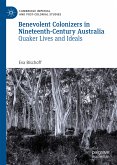-Jarrod Hore, Co-Director of the New Earth Histories Research Program and Postdoctoral Fellow, University of New South Wales
This book untangles the connections between British industrialization and colonial expansion in the late-eighteenth and nineteenth centuries. The addition of fossil fuels to the energy mix in this period drove overwhelming social and economic change in Britain, the north-east United States, and Europe, but it also had important and uneven consequences within a range of Euro-American colonies. Opening a new field of inquiry into fossil fuel-powered technologies and their critical role in colonial expansion, this book demonstrates how carbon- based economies dramatically accelerated the annexing of foreign lands and the extraction of their resources. Yet, while the use of coal on a commercial scale from the late 1700s powered an explosion of growth in manufacturing between 1760 and 1840 and these years coincided with the incursion and violence on colonial frontiers, the peripheries tended to rely on wood where they could. This intensification of animal and timber power complicated the nationalist narratives of coal-fired industrialization and economic development. A history of the meanings and ideas around carbon, fossil fuels, and their bearing within colonial expansion is increasingly relevant as rapid changes to climate bring into focus the legacy of carbonization in dispossession, sustainability, environmental, labor, and atmospheric relational histories.
Liz Conor is an ARC Future Fellow and Associate Professor in History at La Trobe University, Australia. Former editor of the Aboriginal History Journal, she has published extensively on colonial and modern visual and print history, including her most recent book, Skin Deep: Settler Impressions of Aboriginal Women (2016).
Dieser Download kann aus rechtlichen Gründen nur mit Rechnungsadresse in A, B, BG, CY, CZ, D, DK, EW, E, FIN, F, GR, HR, H, IRL, I, LT, L, LR, M, NL, PL, P, R, S, SLO, SK ausgeliefert werden.









